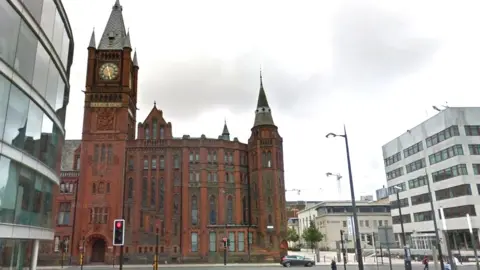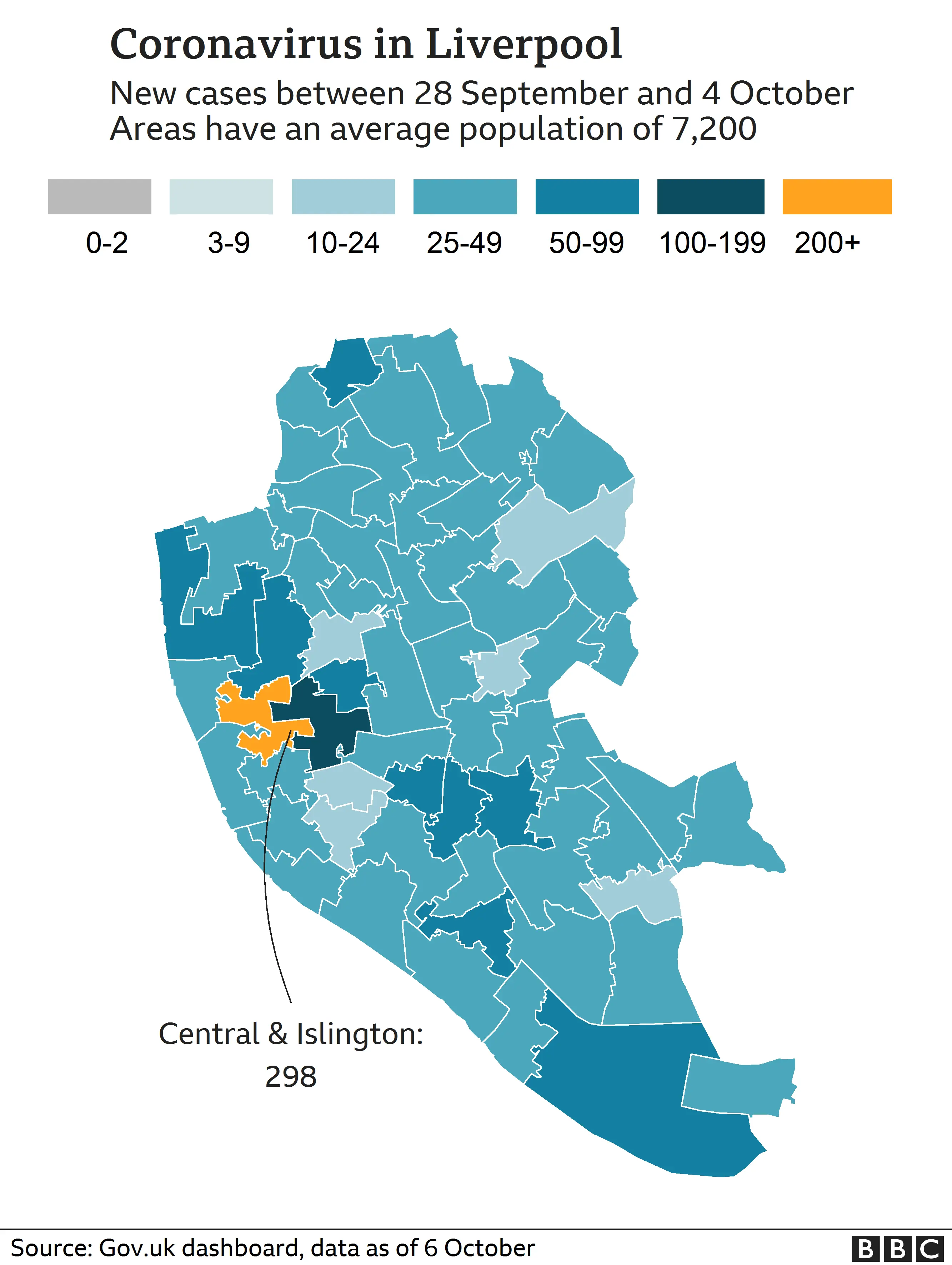Coronavirus: University of Liverpool moves teaching online
 Google
GoogleThe University of Liverpool has moved the majority of teaching online amid a surge in coronavirus infections.
It follows a decision by Liverpool Hope John Moores universities to host classes via the internet.
The University and College Union criticised the university for taking "too long" to make the decision, despite rising Covid-19 cases.
But a University of Liverpool spokesman said it had already made a reduction in face-to-face teaching.
With formal classes due to start on Monday, the university has now agreed that in-person teaching will be limited to students in clinical, laboratory and other practice-based disciplines, and those required for professional accreditation.

Analysis - Daniel Wainwright, BBC England Data Unit
Liverpool has one of the highest rates of infection in England with nearly 588 cases per 100,000 residents in the week to 5 October.
There were 2,882 cases in the city that week.
Knowsley had 902 cases, but with a smaller population that worked out at 601 cases per 100,000 people.
The Central and Islington area, which is home to the University of Liverpool campus, recorded 298 new cases for the week to 4 October - the highest in the city.
Another 100 confirmed infections came from the neighbouring Edge Hill area.


Martyn Moss, from the union, said: "It was clear last month that the university needed to halt in-person teaching, and cases have continued to rise while it has dithered".
The decision to start teaching online, which will be kept under review, comes as Covid-19 restrictions are expected to be tightened in parts of England next week.
The university spokesman said: "We believe we can keep our students and staff safe at this level of operation,"

- SOCIAL DISTANCING: How have rules on meeting friends changed?
- SUPPORT BUBBLES: What are they and who can be in yours?
- FACE MASKS: When do I need to wear one?
- SCHOOLS: What will happen if children catch coronavirus?
- TEACHERS: Are they are at risk with schools reopening?


Why not follow BBC North West on Facebook, Twitter and Instagram? You can also send story ideas to [email protected]
